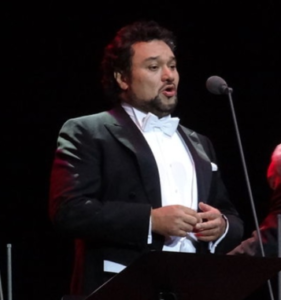
Artist Profile: Mexican Tenor Ramón Vargas, Bel Canto Specialist & Humanitarian
By David SalazarIn the early 2000s, the opera world has seen a surge of Latin American tenors taking over the landscape. Ramón Vargas was among the first to surge.
The Mexican tenor, born on Sept. 11, 1960, started his vocal education in México City before going on to win the Carlo Morelli National Vocal Competition, which earned him a debut in Monterrey in 1982.
His next major career milestone was to win the Enrico Caruso Tenor Competition in Milan in 1986, which opened up doors for him to complete his studies at the Vienna State Opera’s school.
His international debut in 1992 came at the Metropolitan Opera when he was asked to sub in for Luciano Pavarotti in “Lucia di Lammermoor. He then went to La Scala, and the rest is history.
The tenor has managed a successful international career in Buenos Aires, London, Milan, New York, Paris, Madrid, Verona, Vienna, and San Francisco, among many others.
He has recorded a number of albums and has won the Lauri-Volpi Award for Best Opera Singer in 1993, the 2001 ECHO Klassik Singer of the Year Award, and the Gino Tani Award for the Arts.
Additionally, Vargas is very involved in Charity work starting the Eduardo Vargas Memorial Fund in memory of his first son, who died of brain paralysis.
Signature Roles
While the tenor has moved into heavier repertoire in his later career, Vargas was always one of the ultimate Bel Canto singers of the late 1990s and early 2000s. He was renowned for his work in the Rossini operas (he has performed or recorded in 13 of them) as well as those of Donizetti, with “L’Elisir d’Amore” being one of his signature interpretations. He also championed many of Verdi’s earlier operas and has proven himself a solid Mozartian tenor, taking on the major leads in “Don Giovanni,” “Idomeneo,” “Die Zauberflöte” and “La Clemenza di Tito.”
Read More on Vargas
Watch and Listen
Here he is as Alfredo in “La Traviata” alongside Angela Gheorghiu.
And here is his “Una Furtiva Lagrima.”
Categories
Opera Wiki

